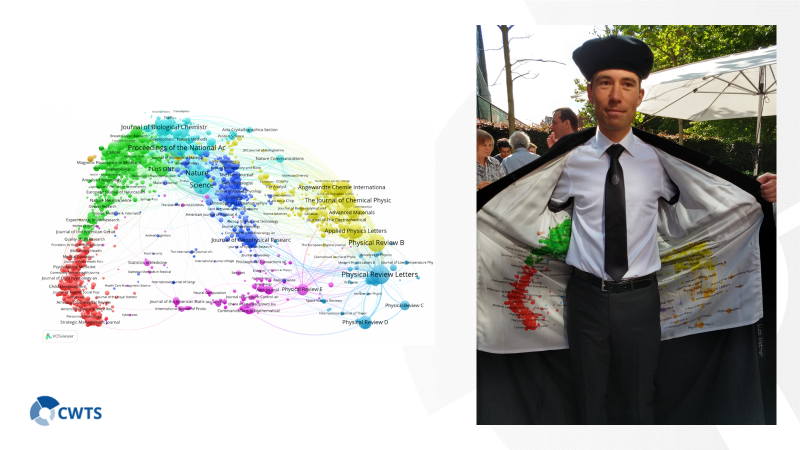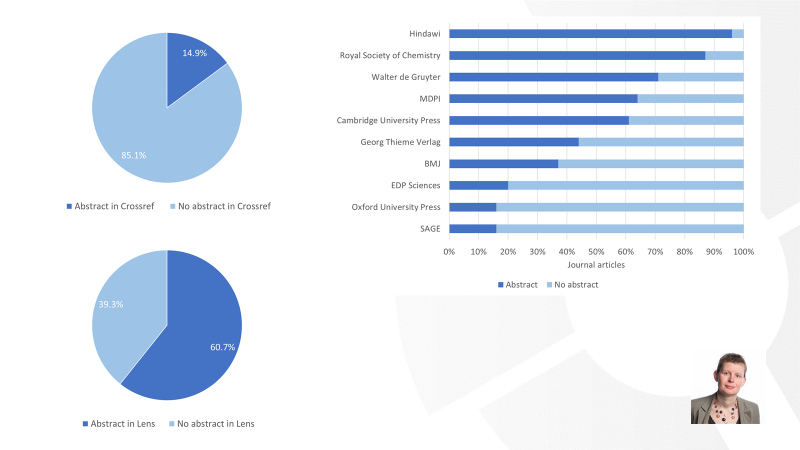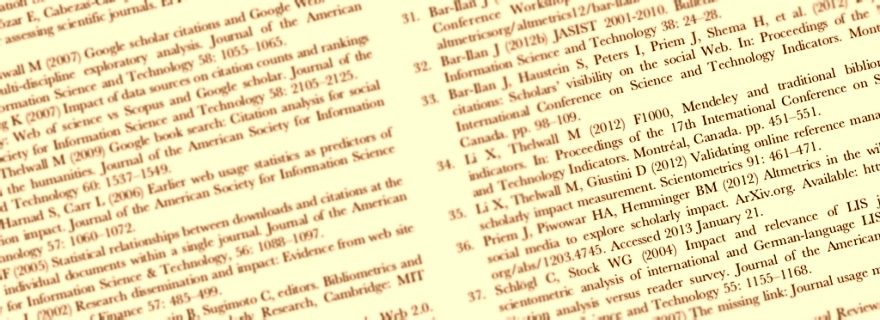Recommendations to Crossref from a Science Studies Perspective
In a recent talk at a Crossref meeting, Ludo Waltman spoke about open citations and made three recommendations to Crossref.
Last week I had the pleasure of participating in Crossref LIVE19 and of giving a short flash talk on ‘the value of Crossref’. Crossref LIVE19 took place in Amsterdam and was attended by over 100 participants, many of them representing scholarly publishers and other Crossref member organizations. I was invited to give my perspective as a science studies researcher making use of the metadata that Crossref collects for research articles and other scholarly outputs.
Open citations
As I emphasized in my talk, the scholarly community should be extremely grateful to Crossref and many publishers for the efforts they have made over the past years to increase the open availability of metadata of scholarly publications, especially data on the references included in publications. Thanks to all publishers that have joined the Initiative for Open Citations (I4OC), about 60% of all citations in Crossref have become openly available. This can be increased in the direction of 100% if Elsevier, ACS, and IEEE, the only large publishers that do not yet support I4OC, decide to join as well. The photo below shows how I4OC has enabled me to carry a network of hundreds of millions of open citations inside my gown. Thanks a lot to Crossref and all publishers participating in I4OC for making this possible!

Although this was not part of the formal program, various Crossref LIVE participants informally asked me about the ongoing negotiations between the Dutch universities and Elsevier. According to a recent news article, a combined deal is being discussed in the Netherlands for open access publishing in Elsevier journals and for pilot projects with Elsevier software tools for managing scholarly metadata. Crossref LIVE participants told me, rightfully I believe, that it would be ironic if Elsevier’s reluctance to join I4OC is ‘rewarded’ with such a deal. A serious commitment by Elsevier to open science would require not only support for open access publishing but also support for open citations.
After celebrating the impressive steps that have been taken in increasing the open availability of scholarly metadata, I used the rest of my talk to make the following three recommendations to Crossref:
Recommendation 1: Make sure your basic infrastructure works well
Crossref’s basic infrastructure sometimes suffers from significant technical problems. Earlier this year, it was discovered that millions of references had not been properly linked to cited publications. (In the meantime, this problem has been fixed.) More recently, Crossref’s metadata API faced technical challenges causing the title search feature to be disabled. This for instance affects users of the VOSviewer software, who are no longer able to search for publications in Crossref based on their title. Given the severity of these technical problems, my first recommendation to Crossref is to put additional effort into improving the stability and reliability of its basic infrastructure.
Recommendation 2: Work together with publishers to increase completeness of metadata
My second recommendation to Crossref is to actively engage with publishers to increase the completeness of scholarly metadata. To illustrate why this is important, I focused on abstracts of publications. Statistics kindly provided to me by Bianca Kramer reveal that of all journal articles in Crossref in the period 2016–2018, just 15% has an abstract (see the figure below). Many publishers do not yet deposit abstracts in Crossref. Interestingly, for the same set of journal articles, it turns out that 61% has an abstract in the Lens (which relies strongly on data from Microsoft Academic). This suggests that, if publishers do not deposit metadata in Crossref, the data will become available anyway, but without publishers being able to guarantee the quality of the data.

Recommendation 3: Participate in initiatives for improving and enriching metadata, and develop fair models for funding and sustaining such initiatives
In my third recommendation, I encourage Crossref to participate in collaborative projects and initiatives focused on improving and enriching scholarly metadata, such as ORCID, FREYA, and ROR. In my talk, I discussed ROR (Research Organization Registry) in more detail. The aim of ROR is to create identifiers for research organizations, similar to the way ORCID offers identifiers for researchers. ROR is a challenging but extremely important project. It may for instance help to increase the transparency of university rankings and to spur innovation in the design of these rankings. CWTS is committed to actively contribute to ROR, and hopefully other organizations will offer support as well, for instance by contributing to ROR’s fundraising campaign. At the end of Crossref LIVE19, it was great to see that there is a lot of interest in ROR. In fact, when the Crossref LIVE participants were asked to vote for different priorities for Crossref, ROR ended up as the single most important priority.

While ROR and other similar infrastructure projects are of clear importance, they also raise complex questions about the best way of organizing governance, funding, and sustainability of such projects. Crossref is largely funded by publishers that pay membership and content registration fees. However, publishers are not necessarily the main beneficiaries of projects such as ROR. It seems fair to expect the main beneficiaries (e.g., research analytics providers, research funders, and research institutions) to contribute more to the funding and sustainability of these projects. In return, they should then also be involved in the governance of these projects. Organizing funding for infrastructure projects such as ROR represents a collective action problem in which a large number of stakeholders need to jointly take their responsibility to contribute.
Science studies research
This was the first time I attended Crossref LIVE. For me this provided a great opportunity to meet the Crossref community. I am thankful to Crossref for the invitation to give a talk and to share my perspective as a science studies researcher. Crossref has a lot to offer to science studies research. Hopefully the science studies field will increasingly engage with Crossref and its members and benefit from their important work.



0 Comments
Add a comment